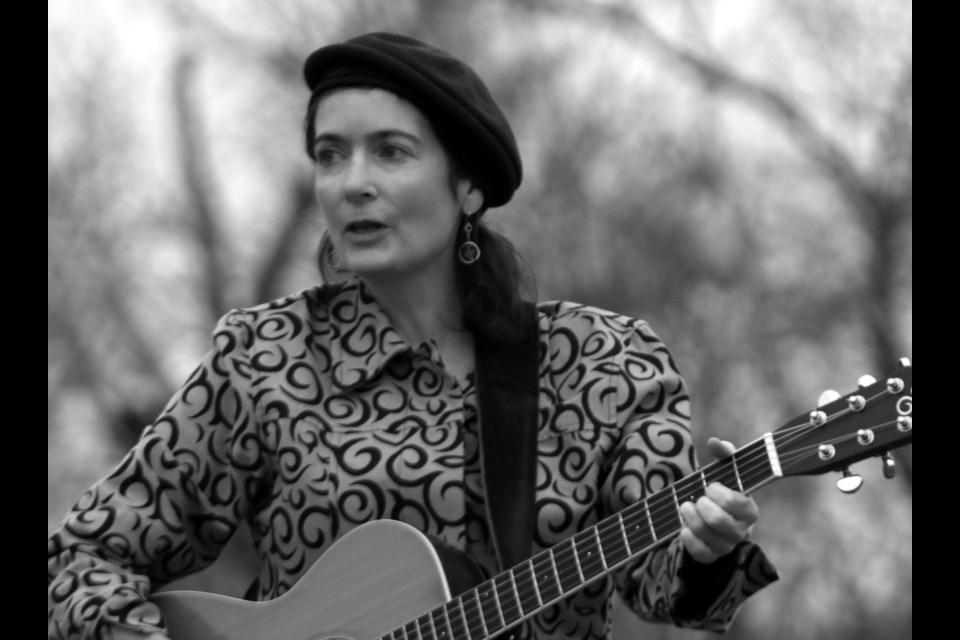Humans are programmed to resist change. So, when someone pushes against accepted norms, they are called disruptors.
Former chief Dorothy McDonald-Hyde of the Cree, Dene and Métis peoples of Fort McKay pushed against what she perceived as injustices to her community. And today her efforts are remembered in On the River with Asani & Maria Dunn.
The video ballad is a 60-minute live performance of music and video that views the Fort McKay community through the lens of McDonald-Hyde, a woman of grit who demanded oilsands executives and logging companies treat her community with respect.
“She was a very determined and strong advocate for her people. She sued the oil industry because of a leak in tailings pond that they didn’t tell the community for three weeks. She’d go into a room facing 10 lawyers in suits and she’d fight for individual traplines that were destroyed by pollution. She felt they should provide compensation for lost traplines. Her daughter Dayle described her mother as fierce advocate,” Dunn said.
This compelling video ballad takes place at the Arden Theatre on Friday, Nov. 8.
“You could describe it as a dance between music and video clips of footage,” said Dunn, who assisted in the production along with producer Don Bouzek of Ground Zero Productions.
Fort McKay is on the Athabasca River, north of Fort McMurray and in the past 70 years has undergone extraordinary changes influenced largely by the massive oilsands and logging industries.
Back in 2008, Dunn listened to a CBC broadcast where reporter Shelagh Rogers talked about how the massive influx of industry near Fort Chipewyan laced free-flowing waters with poisonous metals from industry.
“People had lived on the land for 1,000 years, yet in last 70 years they could not drink the water or eat fish,” said Dunn. “Hearing about them made me realized I needed to pay attention to some real injustices to those communities.”
Angry with industry leaders for ignoring basic health requirements, Dunn teamed up with Bouzek and started to look for ways to get to know the community. Before producing any material, Dunn and Bouzek asked the community’s permission to produce the project.
The duo knew of Dr. John O’Connor, an area physician who had spoken on panels discussing how people were affected by the oil industry’s presence.
“At one time, he was a family physician at Fort McKay. It started organically, and he approached the band council to see if they were interested in the project. The elders were particularly excited because they had seen tremendous change in fishing and hunting.”
While interviews and filming took place, Dunn and Asani’s three members Sherryl Sewepagaham, Debbie Houle and Sarah Pocklington wrote nine songs which will be sung.
One of the most profound Cree songs is Nipiy (Water) and how this giver of life is sacred to Indigenous populations. And another song Blockade, written by Pocklington, reimagines the 1983 Fort McKay blockade.
The Indigenous resistance campaign started against a logging company and expanded to demanding compensation. In addition, it called for tougher oilsands pollution management and better health care access.
“This is an extremely important story to be told. Truth and Reconciliation can be achieved if Indigenous and non-Indigenous collaborate and tell stories about their communities and what struggles they go through, and what we can do so it doesn’t happen again.”
On the River is on Friday, Nov. 8 at 7:30 p.m. at the Arden Theatre. This is a Pay-What-You-Choose event. Go online at tickets.stalbert.ca or call 780-459-1542.




